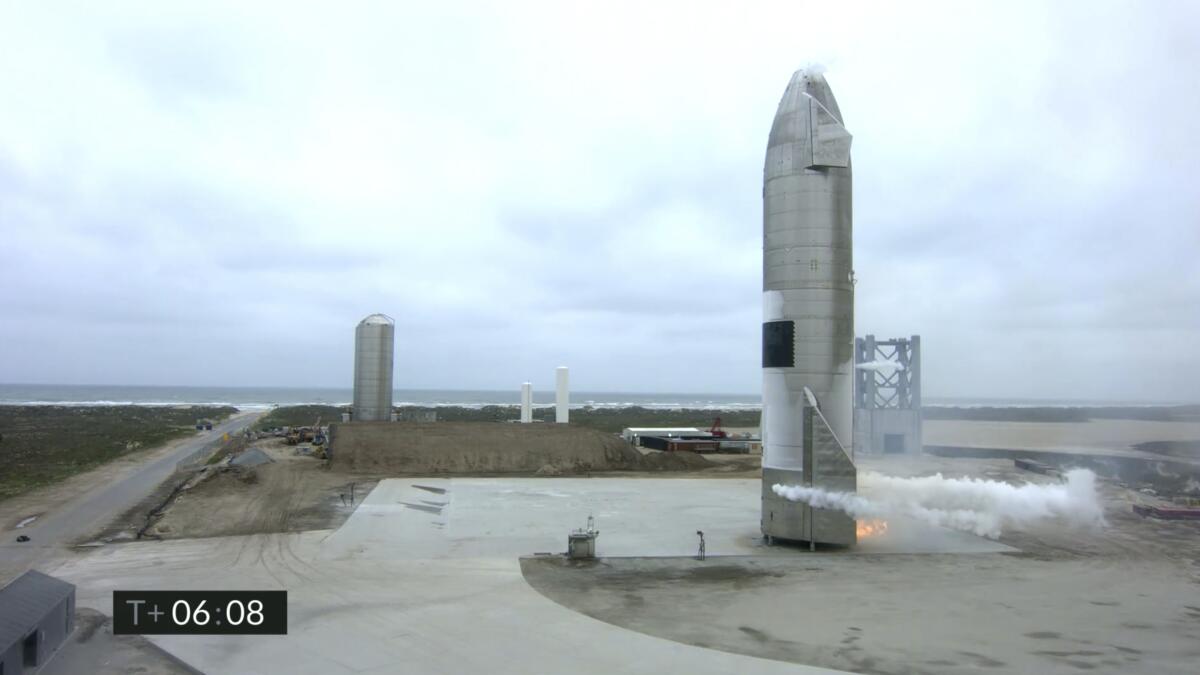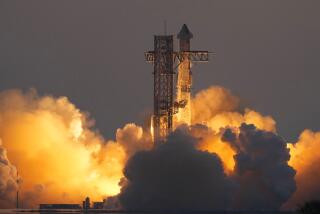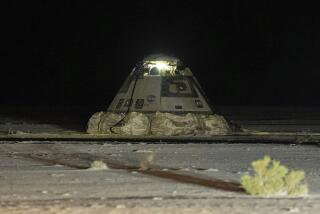SpaceX successfully lands its futuristic Starship for first time

CAPE CANAVERAL, Fla. — SpaceX launched and successfully landed its futuristic Starship on Wednesday, finally nailing a test flight of the rocket ship that Elon Musk intends to use to land astronauts on the moon and send people to Mars.
The previous four test flights ended in fiery explosions before, during or soon after touchdown at the southeastern tip of Texas, near Brownsville.
This latest upgraded version of SpaceX’s full-scale, stainless-steel, bullet-shaped rocket ship soared more than six miles over the Gulf of Mexico before flipping and descending horizontally, and then going vertical again just in time for touchdown.
“Starbase Flight Control has confirmed, as you can see on the live video, we are down. The Starship has landed!” launch commentator John Insprucker announced.
A fire at the base of the 160-foot-tall rocket was quickly extinguished, and the rocket remained standing after the six-minute flight. Musk tweeted the landing was “nominal” — by the book, in other words.
Jeff Bezos’ Blue Origin space company will make one seat available to the public on the July 20 trip in its New Shepard space capsule.
Success came on the 60th anniversary of the flight of the first American in space, Alan Shepard. And it capped a stunning two weeks of achievements for SpaceX: the launch of four more astronauts to the space station for NASA, the nation’s first nighttime crew splashdown since the Apollo moonshots, and two launches for its mini internet satellites.
Less than a month ago, NASA chose SpaceX’s Starship to deliver astronauts to the lunar surface in the next few years. The $3-billion contract was halted last week, however, after the losing bidders — Jeff Bezos’ Blue Origin and Dynetics — protested the selection.
Musk said last month that the NASA money will help development of Starship, which is meant to eventually launch atop a Super Heavy booster. He said it’s been a “pretty expensive” project so far and mostly funded internally. The first high-altitude test was in December.
“As you can tell, if you’ve been watching the videos, we’ve blown up a few of them. So excitement guaranteed, one way or another,” Musk told reporters after the private company’s second crew flight April 23.
Long after Wednesday’s touchdown, Starship was still standing tall.
More to Read
Inside the business of entertainment
The Wide Shot brings you news, analysis and insights on everything from streaming wars to production — and what it all means for the future.
You may occasionally receive promotional content from the Los Angeles Times.










